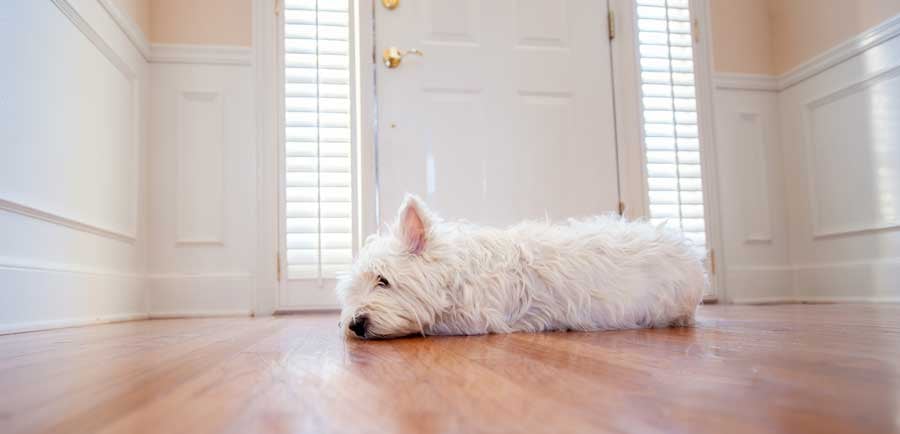Does your pup suffer from separation anxiety every day when you leave the house? You may wonder whether your dog's poor behavior is due to your absence or something else. Here are the signs and symptoms of separation anxiety in dogs:
- Excessive salivation
- Excessive barking
- Whining
- Destructive behavior around the house
- Scratching walls, doors, and floors in an attempt to "escape."
So how can you help your dog through his or her anxiety? First, you need to understand whether this is a true anxiety for your dog or whether it's a learned behavior to get your attention.
Simulated anxiety is a learned behavior that is meant to attract attention. For some dogs, even a reprimand is better than no attention. Although this learned behavior can be frustrating, it's a sign that your dog needs a little more time with people or other dogs.
True anxiety is a much more severe problem that is harder to overcome. Through some training and setting a routine, you can work to help your dog overcome a true anxiety.
The best ways to reduce your dog's separation anxiety are through time, effort, and energy on your part. Here are some tips from dog experts.
- Develop a simple, fast routine for when you leave the house: Don't make a "big deal" out of every time you leave in the morning. Give your dog a treat or a pat on the head, say goodbye, and leave. Don't make it abrupt, but don't linger.
- Spend significant time on training: Your dog should learn to sit and stay while you go out of sight, whether you're home or not. You should also train your dog to wait to be greeted by guests rather than jumping the minute they walk through the door. This kind of training lets your dog know what is expected of him or her and makes him or her less anxious.
- Crate train: Some dogs associated being in their crate only with their owners' absence. Consider crate training your dog with short periods of time in their crate while you're home, associating it with rest, treats, and toys. Show your dog that crate time can be a positive experience.
If you're still concerned about your dog's separate anxiety, consider using a doggy day care during the week while you're at work. As always, our veterinarians are here to help you with any questions or concerns you have.
